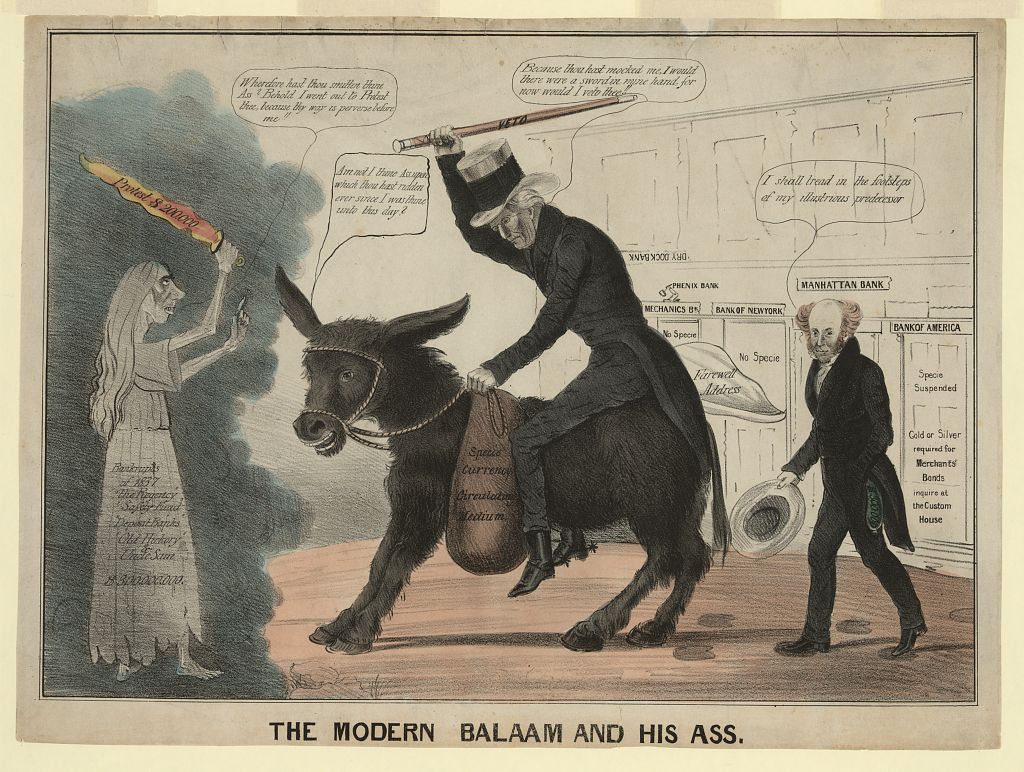|
Edward C. Reed
Edward Cambridge Reed (March 8, 1793 – May 1, 1883) was an American lawyer and War of 1812 veteran who served one term as a U.S. Representative from New York from 1831 to 1833. Biography Born in Fitzwilliam, New Hampshire, Reed attended the common schools. He graduated from Dartmouth College, Hanover, New Hampshire, in 1812 and served in the War of 1812 under Governor William L. Marcy. Early career After studying law in Troy, New York, Reed was admitted to the bar in 1816 and commenced his practice in Homer, New York. He was secretary of the board of trustees of Cortland Academy in Homer from 1822 to 1870. Between 1827 and 1836, he served as district attorney of Cortland County. He was admitted to the Court of Chancery in 1830. Congress Reed was elected as a Jacksonian Democrat to the 22nd United States Congress The 22nd United States Congress was a meeting of the legislative branch of the United States federal government, consisting of the United State ... [...More Info...] [...Related Items...] OR: [Wikipedia] [Google] [Baidu] |
Jacksonian Democracy
Jacksonian democracy was a 19th-century political philosophy in the United States that expanded suffrage to most white men over the age of 21, and restructured a number of federal institutions. Originating with the seventh U.S. president, Andrew Jackson and his supporters, it became the nation's dominant political worldview for a generation. The term itself was in active use by the 1830s. This era, called the Jacksonian Era or Second Party System by historians and political scientists, lasted roughly from Jackson's 1828 election as president until slavery became the dominant issue with the passage of the Kansas–Nebraska Act in 1854 and the political repercussions of the American Civil War dramatically reshaped American politics. It emerged when the long-dominant Democratic-Republican Party became factionalized around the 1824 United States presidential election. Jackson's supporters began to form the modern Democratic Party. His political rivals John Quincy Adams and Henr ... [...More Info...] [...Related Items...] OR: [Wikipedia] [Google] [Baidu] |
19th-century American Politicians
The 19th (nineteenth) century began on 1 January 1801 (Roman numerals, MDCCCI), and ended on 31 December 1900 (Roman numerals, MCM). The 19th century was the ninth century of the 2nd millennium. The 19th century was characterized by vast social upheaval. Slavery was abolitionism, abolished in much of Europe and the Americas. The Industrial Revolution, First Industrial Revolution, though it began in the late 18th century, expanding beyond its British homeland for the first time during this century, particularly remaking the economies and societies of the Low Countries, the Rhineland, Northern Italy, and the Northeastern United States. A few decades later, the Second Industrial Revolution led to ever more massive urbanization and much higher levels of productivity, profit, and prosperity, a pattern that continued into the 20th century. The Gunpowder empires, Islamic gunpowder empires fell into decline and European imperialism brought much of South Asia, Southeast Asia, and almost ... [...More Info...] [...Related Items...] OR: [Wikipedia] [Google] [Baidu] |
Jacksonian Members Of The United States House Of Representatives From New York (state)
Jacksonian may refer to: *Jacksonian Democrats, party faction * Jacksonian democracy, American political philosophy *Jacksonian seizure Focal seizures (also called partial seizures and localized seizures) are seizures which affect initially only one hemisphere of the brain. The brain is divided into two hemispheres, each consisting of four lobes – the frontal, temporal, pari ..., in neurology {{disambig ... [...More Info...] [...Related Items...] OR: [Wikipedia] [Google] [Baidu] |
Dartmouth College Alumni
This list of alumni of Dartmouth College includes alumni and current students of Dartmouth College and its graduate schools. In addition to its undergraduate program, Dartmouth offers graduate degrees in nineteen departments and includes three graduate schools: the Tuck School of Business, the Thayer School of Engineering, and Dartmouth Medical School. Since its founding in 1769, Dartmouth has graduated classes of students and today has approximately 66,500 living alumni. This list uses the following notation: * D or unmarked years – recipient of Dartmouth College Bachelor of Arts * DMS – recipient of Dartmouth Medical School degree (Bachelor of Medicine 1797–1812, Doctor of Medicine 1812–present) * Th – recipient of any of several Thayer School of Engineering degrees (see Thayer School of Engineering#Academics) * T – recipient of Tuck School of Business Master of Business Administration, or graduate of other programs as indicated *M.A., M.A.L.S., M.S., Ph.D, etc. ... [...More Info...] [...Related Items...] OR: [Wikipedia] [Google] [Baidu] |
1883 Deaths
Events January–March * January 4 – ''Life (magazine), Life'' magazine is founded in Los Angeles, California, United States. * January 10 – A Newhall House Hotel Fire, fire at the Newhall Hotel in Milwaukee, Wisconsin, United States, kills 73 people. * January 16 – The Pendleton Civil Service Reform Act, establishing the United States civil service, is passed. * January 19 – The first electric lighting system employing overhead wires begins service in Roselle, New Jersey, United States, installed by Thomas Edison. * February – ''The Adventures of Pinocchio'' by Carlo Collodi is first published complete in book form, in Italy. * February 15 – Tokyo Electrical Lightning Grid, predecessor of Tokyo Electrical Power (TEPCO), one of the largest electrical grids in Asia and the world, is founded in Japan. * February 16 – The ''Ladies' Home Journal'' is published for the first time, in the United States. * February 23 – Al ... [...More Info...] [...Related Items...] OR: [Wikipedia] [Google] [Baidu] |
1793 Births
The French Republic introduced the French Revolutionary Calendar starting with the year I. Events January–June * January 7 – The Ebel riot occurs in Sweden. * January 9 – Jean-Pierre Blanchard becomes the first to fly in a gas balloon in the United States. * January 13 – Nicolas Jean Hugon de Bassville, a representative of Revolutionary France, is lynched by a mob in Rome. * January 21 – French Revolution: After being found guilty of treason by the French National Convention, ''Citizen Capet'', Louis XVI of France, is guillotined in Paris. * January 23 – Second Partition of Poland: The Russian Empire and the Kingdom of Prussia partition the Polish–Lithuanian Commonwealth. * February – In Manchester, Vermont, the wife of a captain falls ill, probably with tuberculosis. Some locals believe that the cause of her illness is that a demon vampire is sucking her blood. As a cure, Timothy Mead burns the heart of a deceased person in ... [...More Info...] [...Related Items...] OR: [Wikipedia] [Google] [Baidu] |
Nicoll Halsey
Nicoll Halsey (March 8, 1782 – March 3, 1865) was an American politician who served one term as a U.S. Representative from New York from 1833 to 1835. He was the son of Silas Halsey and brother of Jehiel Howell Halsey. Biography Born in Southampton, New York, Halsey moved to Herkimer County in 1793 with his parents, who settled in what is now the town of Lodi, New York. He attended the common schools. He moved to Tompkins County and settled near Trumansburg in 1808. Career He engaged in agricultural pursuits and milling. Supervisor for Ulysses, New York Ulysses is a town located in northwest Tompkins County, New York, U.S. The population was 4,940 at the 2020 census. The town was named after the hero of the '' Odyssey''. The Town of Ulysses is northwest of the city of Ithaca and is in the nor ... in 1812, 1814, 1815, 1818, 1821, and 1826. He served as member of the State assembly in 1816 and again in 1824. Sheriff of Tompkins County 1819–1821. Congress Halsey ... [...More Info...] [...Related Items...] OR: [Wikipedia] [Google] [Baidu] |
Thomas Beekman
Thomas Beekman (July 4, 1790 – February 2, 1870) was an American politician and a U.S. Representative from New York. Biography Beekman was born in Kinderhook, New York to John J. Beekman and Annatje Pruyn. His elder brother was Dr. John Pruyn Beekman (1788–1861), a member of the New York State Senate from 1845 to 1847. Beekman studied law and became an attorney and farmer in Smithfield and later Peterboro. Career Beekman served in local offices including as a town clerk, and was active in the militia as aide-de-camp to the commander of its 17th Division. Beekman was also active in the Anti-Masonic movement of the 1820s and 1830s. Elected as an Anti-Jacksonian to the Twenty-first Congress, Beekman was U. S. Representative for the twenty-second district of New York and served one term, from March 4, 1829, to March 3, 1831. In 1831 he was an unsuccessful Anti-Masonic candidate for the New York State Senate The New York State Senate is the upper house of the New ... [...More Info...] [...Related Items...] OR: [Wikipedia] [Google] [Baidu] |
Ithaca, New York
Ithaca is a city in the Finger Lakes region of New York, United States. Situated on the southern shore of Cayuga Lake, Ithaca is the seat of Tompkins County and the largest community in the Ithaca metropolitan statistical area. It is named after the Greek island of Ithaca. A college town, Ithaca is home to Cornell University and Ithaca College. Nearby is Tompkins Cortland Community College (TC3). These three colleges bring thousands of students to the area, who increase Ithaca's seasonal population during the school year. As of 2020, the city's population was 32,108. History Early history Native Americans lived in this area for thousands of years. When reached by Europeans, this area was controlled by the Cayuga tribe of Indians, one of the Five Nations of the ''Haudenosaunee'' or Iroquois League. Jesuit missionaries from New France (Quebec) are said to have had a mission to convert the Cayuga as early as 1657. Saponi and Tutelo peoples, Siouan-speaking tribes, lat ... [...More Info...] [...Related Items...] OR: [Wikipedia] [Google] [Baidu] |
22nd United States Congress
The 22nd United States Congress was a meeting of the legislative branch of the United States federal government, consisting of the United States Senate and the United States House of Representatives. It met in Washington, D.C. from March 4, 1831, to March 4, 1833, during the third and fourth years of Andrew Jackson's presidency. The apportionment of seats in the House of Representatives was based on the Fourth Census of the United States in 1820. Both chambers had a Jacksonian majority. Major events * December 28, 1832: Vice President John C. Calhoun resigned. The first Vice President of the United States to do so. * Nullification Crisis Major legislation * July 14, 1832: Tariff of 1832, ch. 227, * March 2, 1833: Tariff of 1833 (Compromise Tariff), ch. 55, * March 2, 1833: Force Bill, ch. 57, Party summary The count below identifies party affiliations at the beginning of the first session of this congress. Changes resulting from subsequent replacements are shown below ... [...More Info...] [...Related Items...] OR: [Wikipedia] [Google] [Baidu] |
Court Of Chancery
The Court of Chancery was a court of equity in England and Wales that followed a set of loose rules to avoid a slow pace of change and possible harshness (or "inequity") of the Common law#History, common law. The Chancery had jurisdiction over all matters of equity, including English trusts law, trusts, English property law, land law, the estates of Mental illness, lunatics and the guardianship of infants. Its initial role was somewhat different: as an extension of the lord chancellor's role as Keeper of the King's Conscience, the court was an administrative body primarily concerned with conscientious law. Thus the Court of Chancery had a far greater remit than the common law courts, whose decisions it had the jurisdiction to overrule for much of its existence, and was far more flexible. Until the 19th century, the Court of Chancery could apply a far wider range of remedies than common law courts, such as specific performance and injunctions, and had some power to grant damage ... [...More Info...] [...Related Items...] OR: [Wikipedia] [Google] [Baidu] |






